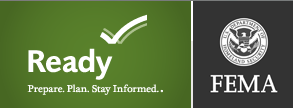Imagine my surprise when I saw that our local government upped the ante in their disaster prep recommendations! What appears to be a loose coalition of Emergency Management Offices here in Western Washington (“Make it Through” – see link below) is making more extensive recommendations than you’ll see at the federal level.

No longer are they recommending the minimal three days of food, water, and other emergency supplies. They’ve more than doubled the recommendation to seven days (actually “seven to ten”). Good for them!
They must have seen my previous article, and realized that three days of food and water just isn’t adequate.
New! Now with… Help Each Other
But that’s not all. They’ve altered the FEMA guidance of “Make a plan, build a kit, be informed.” And it’s a critical twist I wholeheartedly endorse. If you go to http://makeitthrough.org/, you’ll see this guidance:
- Make a plan
- Build a kit
- Help each other(versus FEMA’s “be informed”)
Assuming that people will be informed anyway (if they have a radio in their kit and pay attention otherwise), helping each other is far more important.

In many disaster scenarios, most people won’t have access to the standard array of government emergency services, so we must assume that police, fire, medical and other services will not be available. So who will be available? Each other.
And how can you become more useful, or help others become more self-sufficient?
- One great way is to run a “Map Your Neighborhood” program or something similar, depending on what resources are available in your area. (If you’re not sure how to do this, learn how here.) If you don’t know your neighbors, you should probably get out and say hello. This program is a great excuse to meet people you should already know (and will help you learn other important information…).
- Another great option: take a CERT course with some friends. It will probably go something like this (see installments 1-9).
- And you can’t go wrong by taking Red Cross First Aid and CPR classes, or better yet, one of their First Responder courses.
Back to the latest, greatest government guidance. As it turns out, unfortunately, their “Make a family emergency communication plan” is the typical “write down some phone numbers, including an out-of-area contact” advice. It’s not bad advice, but you can do far better with very little effort. Check out www.emergencycommunicationsblog.com for more details, or if you want the best communications-focused, disaster prep resource out there, get my book! On sale now at Amazon.com :-).
Stay safe!
-Andrew

Since my first class and now, the procedure for CPR has changed at least three times so re-taking a class is beneficial. Thank you for the link. My state has been a little slow in their efforts.